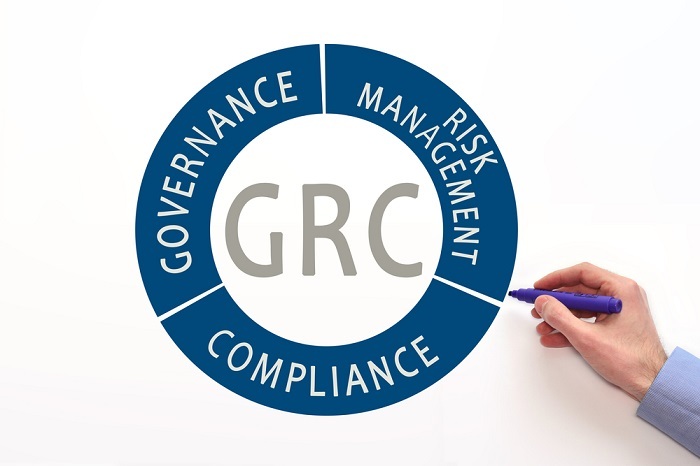
 Data Structure
Data Structure Networking
Networking RDBMS
RDBMS Operating System
Operating System Java
Java MS Excel
MS Excel iOS
iOS HTML
HTML CSS
CSS Android
Android Python
Python C Programming
C Programming C++
C++ C#
C# MongoDB
MongoDB MySQL
MySQL Javascript
Javascript PHP
PHP
- Selected Reading
- UPSC IAS Exams Notes
- Developer's Best Practices
- Questions and Answers
- Effective Resume Writing
- HR Interview Questions
- Computer Glossary
- Who is Who
What are the Legal Requirements in Quality Management?
The article provides an overview of quality management regulations, laws, and guidelines that businesses must adhere to in order to ensure that their products and services meet certain quality standards, while also protecting consumers and encouraging fair competition among businesses.

Noncompliance with these regulations can have serious consequences for businesses, including legal penalties, reputational damage, and customer loss.
The quality management legal framework is made up of laws and standards that govern how organizations must ensure their products and services meet specific quality standards. Quality management documentation, record keeping, and quality audits are all important aspects of quality management, which is required for legal compliance, product safety, and the preservation of a company's reputation.
This article also emphasizes the significance of adhering to quality management regulations and the consequences of failure to do so.
Overview of Quality Management Regulations
A set of laws and guidelines that companies must follow to ensure that their products or services meet certain quality standards are referred to as quality management regulations. These regulations are in place to protect consumers while also encouraging fair competition among businesses.
One important statistic to remember is that noncompliance with quality management regulations can have serious consequences for businesses. According to a study conducted by the US Food and Drug Administration, more than 80% of medical device recalls in 2019 were caused by quality issues that could have been avoided with better quality management practices.
Legal Framework for Quality Management: Laws and Standards

The legal framework for quality management consists of laws and standards that govern how organizations must ensure that their products or services meet certain quality standards. The Food and Drug Administration (FDA) regulations, which govern the safety and quality of food, drugs, and medical devices in the United States, are important law in this area.
Companies must comply with these laws and standards because failure to do so can result in legal penalties and damage to the company's reputation. According to an American Society for Quality study, organizations that implement quality management systems based on recognized standards see a 32% increase in customer retention rates. As a result, implementing effective quality management systems is not only a legal requirement, but also a business necessity.
Quality Management System (QMS) Requirements
A Quality Management System (QMS) is a set of procedures and policies used by a business to manage and improve the quality of its products and services. This system should be designed to meet the needs of the organization while also adhering to applicable standards and regulations.
A QMS must meet a number of specifications. These are some examples ?
Document Control ? All QMS-related documents must be controlled and updated as needed.
Management Responsibility ? The company's top management must be accountable for the QMS and ensure its effectiveness.
Resource Management ? In order for the QMS to function properly, the company must provide the necessary resources.
Product Realization ? The QMS must ensure that products and services meet the needs of the customer and are delivered on time.
Measurement, Analysis, and Improvement ? The QMS must contain processes for measuring, analyzing, and improving the system's effectiveness.
Companies that meet these requirements can ensure that they have an effective Quality Management System in place that complies with legal requirements and allows them to provide high-quality products and services to their customers.
Quality Management Documentation and Record Keeping
The paperwork, files, and records that businesses must create and maintain to ensure that their products or services meet specific quality standards are referred to as quality management documentation and record keeping. Manuals, procedures, work instructions, inspection records, test reports, and audits are examples of such records.
In many industries, keeping accurate records is a legal requirement for quality management. These records serve as proof that a company is adhering to quality standards and can aid in the identification and resolution of quality issues. They can also be used to demonstrate regulatory compliance and in legal proceedings.
Attention to detail, organization, and consistency are required for effective quality management documentation and record keeping. To ensure that records are complete, accurate, and easily accessible when needed, it is critical to establish and follow clear procedures for creating, updating, and storing records. Good documentation practices can assist businesses in reducing errors, increasing efficiency, and ensuring that their products and services meet quality standards.
Regulatory Compliance and Quality Audits
Quality Audits and Regulatory Compliance are important aspects of Quality Management. The obligation of laws, regulations, and guidelines established by regulatory bodies such as the FDA or ISO is referred to as regulatory compliance. Quality audits, on the other hand, are an objective and systematic examination of a company's quality management system to ensure compliance with regulatory requirements and industry standards.
When a company is in compliance with regulatory requirements, it means that it is adhering to the rules and regulations put in place to protect consumers and ensure product safety. This is significant because it aids in the prevention of problems such as product recalls, fines, and legal action. Quality audits are performed to evaluate a company's quality management system and identify areas for improvement.
Importance of Quality Management in Legal Compliance
Quality management is important for legal compliance for several reasons. For starters, it assists businesses in identifying potential areas of noncompliance before they become major problems. This is due to the fact that quality management processes typically include regular audits and reviews of processes to ensure that they comply with legal requirements. Businesses can avoid costly fines and legal action by identifying and addressing potential noncompliance issues early on.
Second, quality management is critical for ensuring that products and services are safe and that they comply with legal requirements. This is especially important in industries where patient safety is a top priority, such as healthcare. Businesses can ensure that their products and services are safe, effective, and in compliance with relevant regulations by implementing quality management processes.
Finally, quality management is critical for maintaining a business ' reputation. A quality and compliance reputation can help businesses attract and retain customers, investors, and partners. A reputation for noncompliance, on the other hand, can result in legal action, fines, and damage to the business's reputation.
Consequences of Non-Compliance with Quality Management Regulations
When a company fails to follow quality management rules and regulations, there can be serious consequences. These consequences can range from legal penalties and fines to reputational damage and customer loss.
One of the most serious consequences of noncompliance is the possibility of legal action. If regulators determine that the company is not adhering to the necessary quality management standards, they may find the company, order a halt in production, or even shut down the business entirely.
Another consequence is that the company's reputation suffers. Customers may lose trust in the company if they discover that it is not adhering to the quality management rules and regulations. Customers may choose to take their business elsewhere as a result of this loss of trust.
Noncompliance can also result in a decrease in the quality of the company's products or services. This can result in a drop in customer satisfaction, which can eventually lead to a loss of business.

